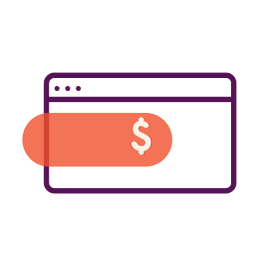Whether your North Carolina small business is in Raleigh, Asheville, Durham, or anywhere else in the state, you need access to capital to keep your business running full steam ahead. Keep reading to learn more about small business loans in North Carolina.
How a Loan Can Help Your Small Business in North Carolina
There are over 934,000 small businesses in North Carolina, in industries ranging from accommodation and food services to wholesale trade. Many of those businesses take on financing to help them.
If you’re starting a small business, small business loans can help you with renovation and startup costs. For established businesses, having access to working capital can get you through slow periods or help you expand your business.
Options for Small Business Loans in North Carolina
There is a financing solution for every small business in North Carolina, from the startup with bad credit to the established business with excellent credit.
COVID-19 Loans
Few small businesses haven’t been impacted in some way by the coronavirus pandemic. Fortunately, there are state and federal resources to help these businesses get back to business as usual.
At the federal level, there are two programs, the Paycheck Protection Program and Economic Injury Disaster Loans, that provide low-interest loans. There are even options for part of those funds to be forgiven rather than repaid.
At the state level, there is the Small Diverse Business Emergency Relief Fund, which provides grants to minority-owned and women-owned businesses.
Bank Loans
Long-term loans from financial institutions like banks and credit unions are a great place to start your research on small business funding. Also, the Carolina Small Business Development Fund offers loans of up to $250,000 to qualifying businesses.
SBA Loans
The Small Business Administration also offers low-interest long-term loans that can be used for working capital, real estate, equipment, and other business expenses.
Some SBA loans are specifically to foster economic and community development, so read the fine print to see if you qualify.
Line of Credit
Lines of credit, unlike loans, don’t provide a lump sum of money up front. Instead, you are approved for a credit line that you can borrow against. Take some now and some later as needed.
Business Credit Card
If you’re cash-poor, you may find making everyday purchases for your North Carolina business to be a challenge. That’s where business credit cards can be useful. Charge those expenses, then pay them off when the cash comes in. And if you get a card with rewards, those purchases can pay off with perks like travel vouchers.
Short-Term Loan
Not every business (or business owner) has great credit, but there are still financing options. Short-term loans can get you the cash you need, but note: the repayment period may be just months, and the interest will likely be higher than other options.
Invoice Financing
If you invoice clients, you may have to wait weeks or months to get paid. But you can leverage those invoices with invoice financing, where you borrow funds based on the value of your outstanding invoices.
How to Qualify for a Small Business Loan in North Carolina
Eligibility for each of the above financing options depends on the lender. Some, like banks, may have more stringent requirements when it comes to your credit scores, while others, like online lenders, may look at other qualifications besides your credit.
Do note that your business credit may be considered. If you haven’t yet learned how to establish business credit, do so to ensure that you qualify for better rates.
How to Apply for a Small Business Loan in North Carolina
Once you determine which financing solution is the best fit for your business, review the loan application to see what you’ll need to provide.
While some applications with online lenders are fairly simple, requiring little more than details about you and your business, annual revenue, and time in business, others, such as SBA loans or bank loans, may require more paperwork.
Expect to be asked for last year’s tax return as well as your profit and loss statements. You may also need to provide your business plan. Don’t have a business plan? Not to worry. There are small business centers like the SBTDC and Women’s Business Center that can provide you with assistance.
Once you submit your application, you may receive an instant response or wait a few days or weeks to get approval. Review your loan agreement carefully, as it will include your approved loan amount and loan terms. Once you sign it, your loan proceeds will be deposited into your business checking account within days.
Uses for Small Business Loans
Small business owners can use loans for any business services or expenses…generally. It’s a good idea to read the fine print of the loan before applying.
For example, an equipment loan can only be used to purchase business equipment or vehicles. An SBA loan may also limit what you can use the funds for.
How Long Does the Loan Process Take?
As mentioned above, the loan process can vary, depending on who your lender is. Online lenders tend to work quickly, approving loans for borrowers within seconds and depositing funds the same day.
Bank and SBA loans, however, may take weeks to process. Know your expected turnaround time and plan accordingly when applying for your small business loan in North Carolina so that you’re not left high and dry waiting for your application to be approved and funds deposited.
Small Business Loans in North Carolina Help You Grow
Having working capital can provide so much opportunity for your business to expand. Spend the time finding the best loan terms you can based on your qualifications, and you could save hundreds, if not thousands of dollars in interest.
This article was originally written on July 8, 2021.



My businesses is new. I set it up September 2020. There is not any loans we can get out there. We don’t have annual revenue and my credit score is in the 600’s with a few delinquent and charge offs. Our business credit is an A but that does not help business lenders pulls your personal credit. We really need a loan to do this business but we are kind of stuck right now. Our business is REI.
Coronda, Since you are in real estate, you may want to look into hard money loans. That article lists some options.